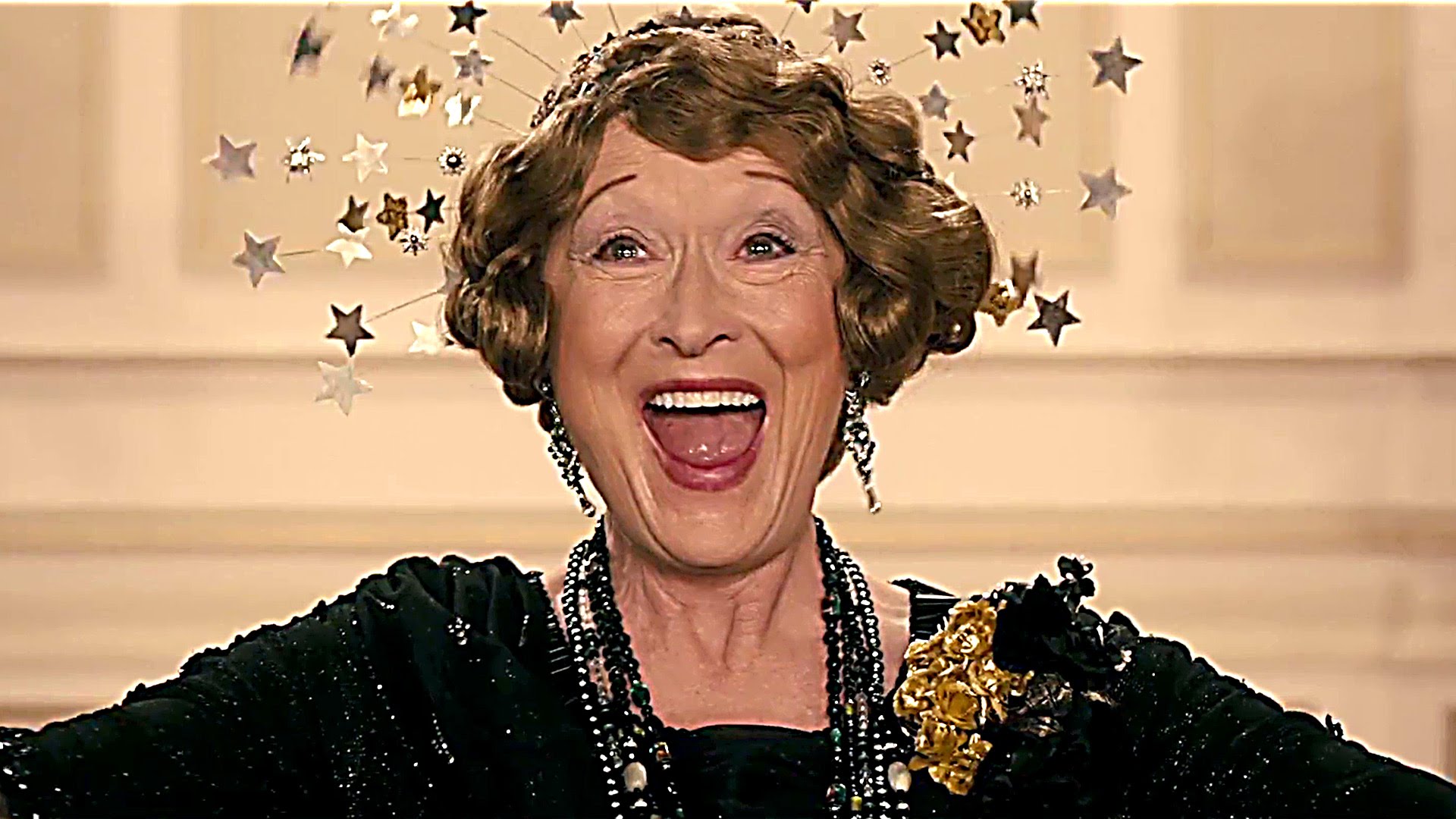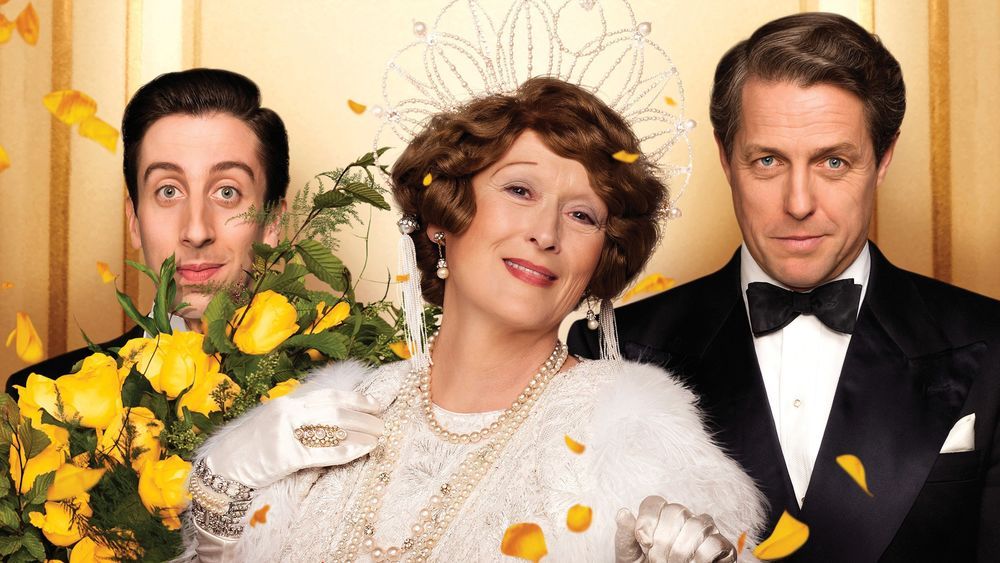

FLORENCE FOSTER JENKINS Review: Her singing? Torture. The movie? Sublime.
This week offers the perfect counter programming for thinking film fans. Starring one of the grand dames of cinema, Meryl Streep, FLORENCE FOSTER JENKINS is helmed by acclaimed director Stephen Frears. No stranger to working with powerful women in film, Frears has already given us THE QUEEN starring Helen Mirren, and PHILOMENA, starring Judy Dench. In his expert hands, this film becomes a poignant, charming look at one very untalented yet passionate woman’s experience sharing her love for singing with the world.
Based on the real life of Jenkins, who still holds one of the records for most requested recordings created at Carnegie Hall, this story follows the would-be diva in her later life. As badly as Florence sang, there is beauty in her unerring commitment and passion. These qualities led to a huge following that went beyond a kitchy appreciation for her combination of cluelessness and ear-splitting warblings. Attendees of her shows included Cole Porter, Lily Pons, and Enrico Caruso. More recent fans included David Bowie. Who are we to argue someone’s relative worthiness onstage with Ziggy Stardust?
Florence is managed and cherished by her English actor husband (Hugh Grant). She navigates upper class New York, leverages her considerable fortune to be taken as a serious artist, and with the help of her money and friends, ultimately performs at Carnegie Hall. This necessitates hiring an accompanist willing to feed Jenkins’ delusions of grand talent. He shows up in the form of Cosme McMoon, here played by Big Bang Theory’s Simon Helberg. McMoon is yet another real-life character, who lived the rest of his being best known for his association with Jenkins.
Playing with subtlety the genuine husbandly compassion and commitment his character shows, Hugh Grant may have his best performance onscreen as Jenkins’ husband St. Clair Bayfield, who displays an uncompromising, uncomplicated love for Jenkins, despite their unusual relationship, and his living apart from her with another woman.
Meryl Streep, in full “I choose what roles I want to play now, and I choose to entertain” mode, brings such sweetness and authenticity to her portrayal, that she elicits fierce loyalty for Florence with the audience, both inside the film and, I suspect, even in history. She is all Florence must have been, including a basket of nerves, a champion for music, a cheerleader, a terrified semi-invalid, and a proud performer in homemade costume begging to be embraced by her audience. Surely no one else could have pulled off playing a woman who sang so badly so well. The audience gets to see just how hard she has worked to be awful during a fantasy sequence when she sings as Florence imagines herself sounding.
Some who might appreciate this sort of counter programming have expressed concern to me that this movie might be corny or silly. It is no sillier than the story itself, which begs a big stretch of the imagination, real though it may be. As to the idea it’s corny, FLORENCE FOSTER JENKINS, as a film, has a sort of overall deep, abiding, stubborn optimism that places it in the feel-good realm, without a doubt, but there is darkness, as with all Steven Frears-directed films. Look no further than that Jenkins’ vocal irregularities, and likely her fierce determination, come from her decades-long battle with syphilis, which she unknowingly contracted as a young woman.
The ultimate message of this charmer is about finding fearlessness and optimism in the face of ridicule. It’s to embrace your passion, whether you’re good at it or not. Who cares? FLORENCE FOSTER JENKINS says in its 110 minutes, “since no one’s future is ever assured, why let reality keep us from our joy? Why not celebrate the activities and things we love best, forget what anyone else thinks”?
B+


